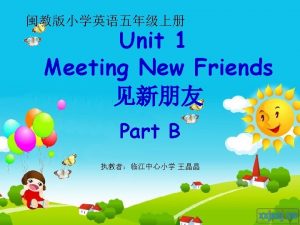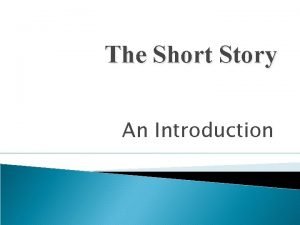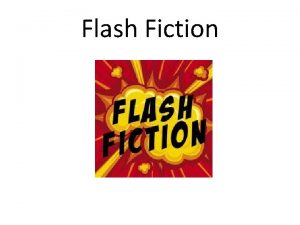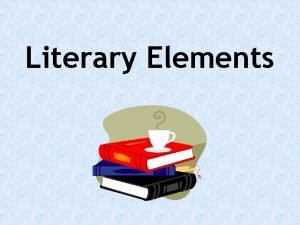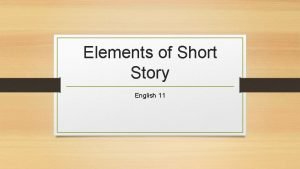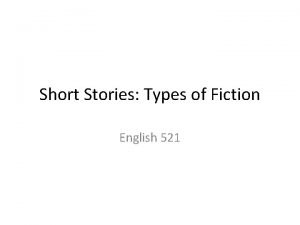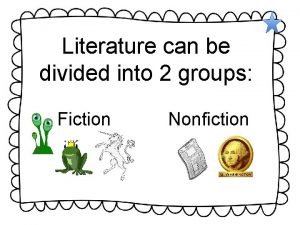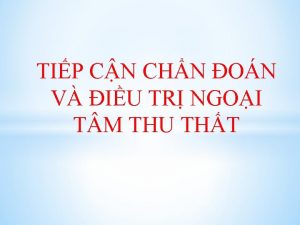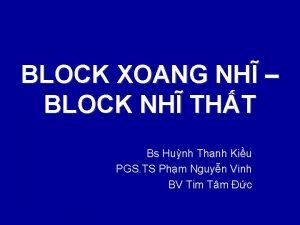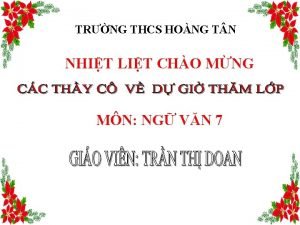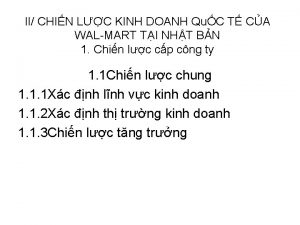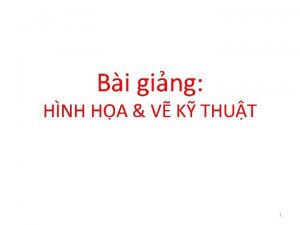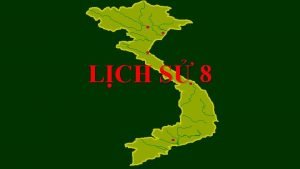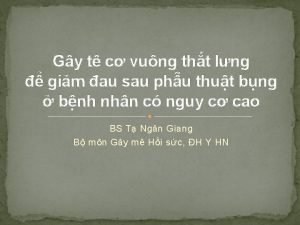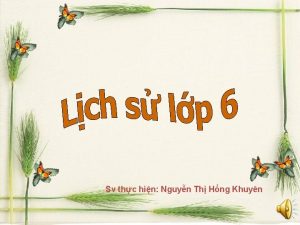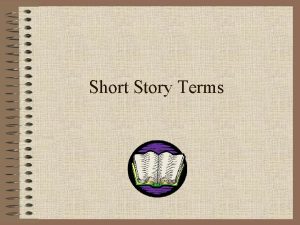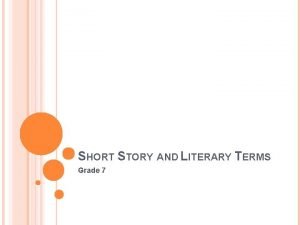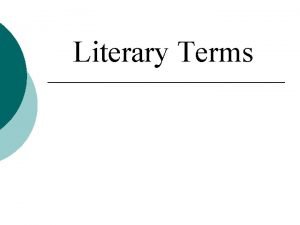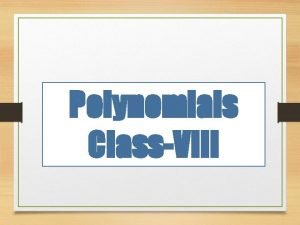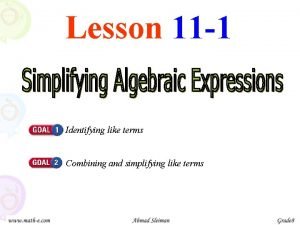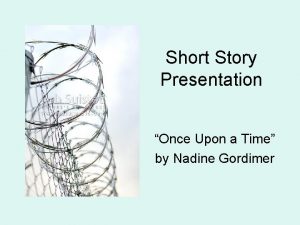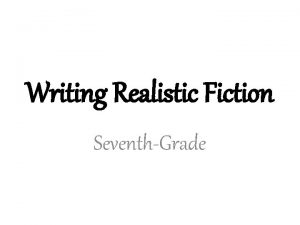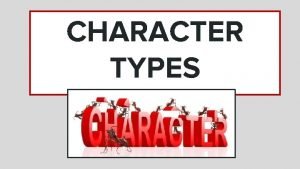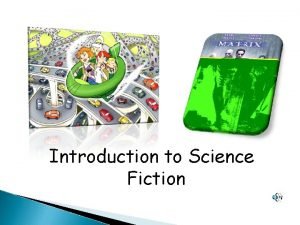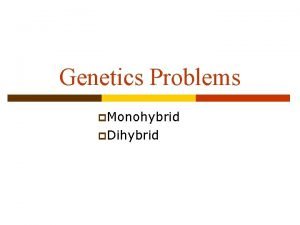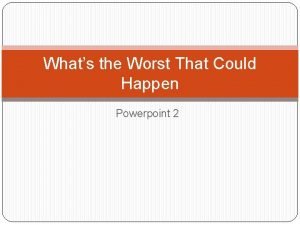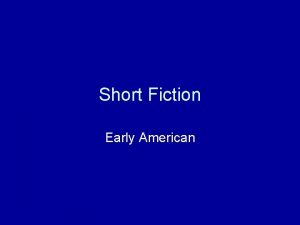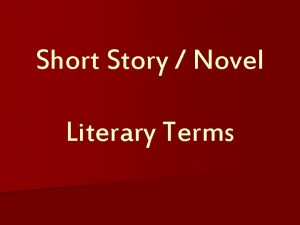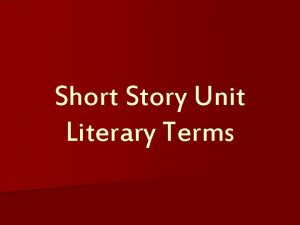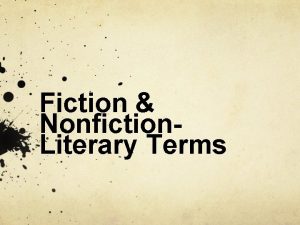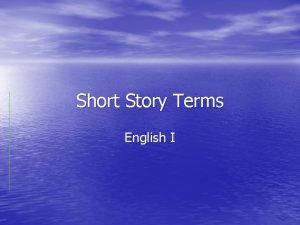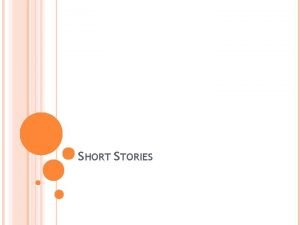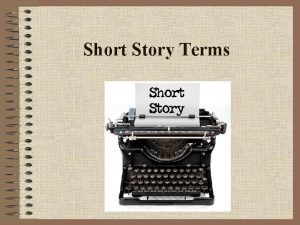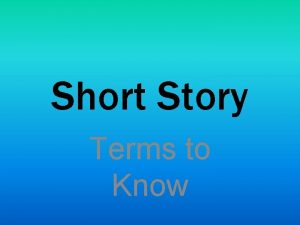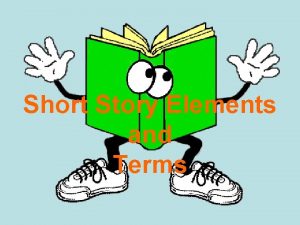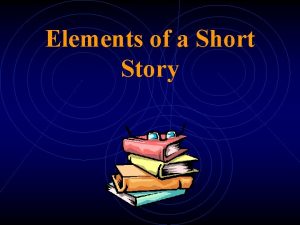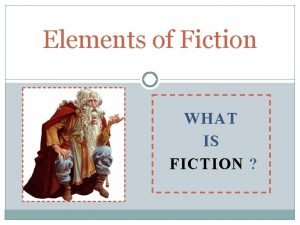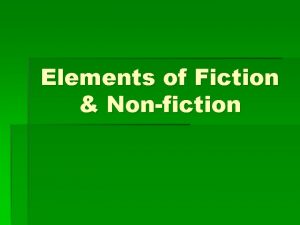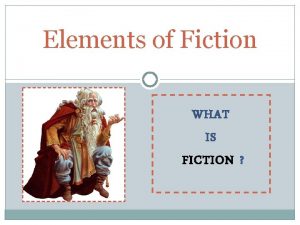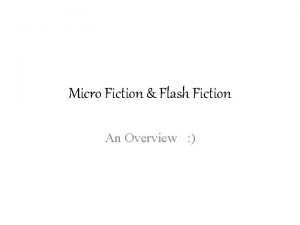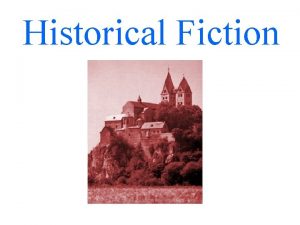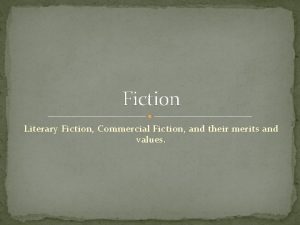Short Story Terms Fiction na story that is


































- Slides: 34

Short Story Terms

Fiction na story that is not true.

Short Story n. A story that can be read in one sitting, has the five parts of the plot, and is a work of fiction.

Plot n the exposition, rising action, climax, falling action, and resolution

Exposition n the beginning of the story where we find out the setting, characters, and the conflict.

Setting n where and when a story takes place.

Character n Protagonist and Antagonist

Protagonist n the main character or "the good guy. "

Antagonist n the character or force that is against the protagonist

Description of Characters: Dynamic–A character that changes as a result of the action in the story n Static-A character that remains the same throughout the story n Round-The reader sees many sides or traits of a character’s personality n Flat- The reader sees only one side or very few traits of a character. n

Characterization n the process of revealing the personality of a character.

Direct Characterization n the author comes out directly and tells the reader about a character’s personality.

Indirect Characterization n When the author allows a character’s actions to tell you about his or her personality.

Conflict n the problem in a story or the struggle between opposing forces.

Internal Conflict n the problem that exists in a character’s mind

External Conflict na problem outside of a character.

Rising Action n Adds conflict to the problem

Climax n Highest point of interest or turning point in a story

Falling Action n possible problem solutions to the

Resolution n how the story ends

Theme n the central idea or meaning of the story

Irony n the events turn out differently than what is expected

1. Situational Irony n when there is a conflict between the expected outcome and what actually occurs

2. Dramatic Irony n the audience has information the characters on stage do not

3. Verbal Irony n when one thing is said but another is meant

Tone n the author’s attitude towards his or her subject matter

Mood n the reader’s feelings about what he or she has read. n Also known as the “atmosphere” of the story.

Symbolism n something that stands for or represents something else

Foreshadowing n clues as to what will happen later in the story

Flashback n to interrupt the current events to show events that happened previously

Dialogue na conversation between two or more characters

Third Person Omniscient Point-of-View n an all-knowing and allseeing narrator

Third Person Limited Point-of View n the narrator is telling a story from a character’s perspective.

First Person Point-of View n the narrator is in the story and is telling the story
 Tall+short h
Tall+short h Story with introduction
Story with introduction Flash fiction elements
Flash fiction elements Short story literary elements
Short story literary elements Element of short story example
Element of short story example Cerita
Cerita Short fiction story example
Short fiction story example It is genre of speculative fiction dealing with imaginative
It is genre of speculative fiction dealing with imaginative Narrative nonfiction elements
Narrative nonfiction elements Contemporary realistic fiction vs historical fiction
Contemporary realistic fiction vs historical fiction Realistic fiction
Realistic fiction Phân độ lown ngoại tâm thu
Phân độ lown ngoại tâm thu Premature atrial contraction
Premature atrial contraction Thơ thất ngôn tứ tuyệt đường luật
Thơ thất ngôn tứ tuyệt đường luật Thơ thất ngôn tứ tuyệt đường luật
Thơ thất ngôn tứ tuyệt đường luật Walmart thất bại ở nhật
Walmart thất bại ở nhật Tìm vết của mặt phẳng
Tìm vết của mặt phẳng Hãy nói thật ít để làm được nhiều
Hãy nói thật ít để làm được nhiều Tôn thất thuyết là ai
Tôn thất thuyết là ai Gây tê cơ vuông thắt lưng
Gây tê cơ vuông thắt lưng Sau thất bại ở hồ điển triệt
Sau thất bại ở hồ điển triệt Symbols in short stories
Symbols in short stories Elements of a short story grade 7
Elements of a short story grade 7 Short story in literary terms
Short story in literary terms Polynomial classification
Polynomial classification Combining like terms definition
Combining like terms definition Story writing once upon a time
Story writing once upon a time Realistic fiction story ideas for 7th grade
Realistic fiction story ideas for 7th grade Types of character
Types of character Fiction story tagalog
Fiction story tagalog Introduction to science fiction
Introduction to science fiction Heterozygous tabby x stripeless
Heterozygous tabby x stripeless Exposition in a short story
Exposition in a short story What's the worst that could happen short story questions
What's the worst that could happen short story questions What is the short story all about
What is the short story all about
